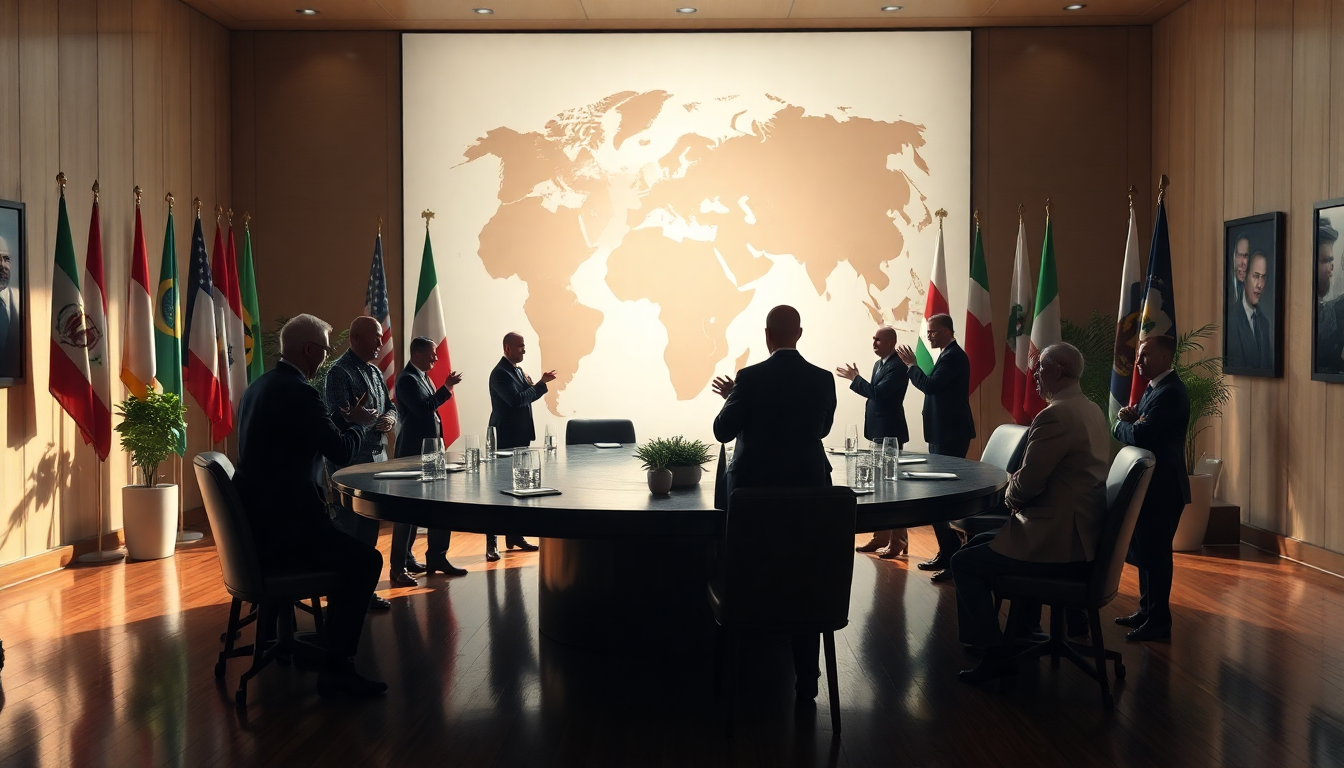Table of Contents
Amidst rising tensions that could make anyone’s skin crawl, the G7 leaders are once again flexing their diplomatic muscles. They’re pointing fingers at Iran, labeling it the primary source of chaos in the Middle East. You’ve got to wonder, can they see the irony in blaming one country for the mess, while the rest of the world sits back and watches? The statement, dripping with authority, declares that Iran should *never* possess nuclear weapons. But really, who are they kidding? When has a country ever backed down from an arms race just because someone else said so?
G7’s bold declarations
In a joint statement that reeks of bravado, leaders from the U.S., U.K., France, Germany, Italy, Canada, and Japan, along with the EU, made it crystal clear: Iran’s nuclear ambitions are unacceptable. It’s almost laughable how they pledge to “remain vigilant” about international energy markets. Oh, please. When have they ever cared about market stability unless their wallets are on the line? They might as well have added a little wink and a nudge while they were at it.
Escalating tensions and cryptic messages
As U.S. President Donald Trump wrapped up his time at the G7 meeting in Kananaskis, he couldn’t resist throwing a little chaos into the mix. He cryptically urged everyone to “immediately evacuate Tehran.” It’s a classic Trump move—stir the pot and then watch the world squirm. The Middle East is a ticking time bomb, and while Trump talks tough, he’s also worried about how much sanctions are costing him. Ah, the sweet irony of it all: a leader more concerned with his wallet than the welfare of a region.
Global implications of the G7’s stance
But let’s not kid ourselves. The G7’s strong words carry weight, or at least they like to think they do. They claim to keep an eye on the implications for global energy markets, but let’s be real; this is more about keeping their own interests safe than about any altruistic global concern. The reality is that countries like Iran don’t just roll over because some fancy leaders in Canada issued a stern warning. They might even laugh in response—after all, who wouldn’t want a little nuclear power for themselves? It’s like a playground fight where the biggest kid claims ownership of the swing set.
European leaders weigh in
Meanwhile, European leaders are caught in a bind. Ursula von der Leyen, the European Commission President, argues that Beijing’s subsidies should unite them rather than tear them apart with tariffs. It’s a lovely sentiment, but does anyone actually believe that? When it comes to global power plays, everyone looks out for themselves, and the talk of unity is just that—talk. How can Europe ramp up defense spending when it’s busy battling trade wars? The irony of it all is almost poetic.
The future of international relations
As we look ahead, the conflicts in the Middle East and Ukraine loom large over these G7 discussions. Leaders seem to be grasping at straws, hoping that their collective outrage will translate into real change. But let’s face it, the chances of Iran backing down are slim, and the G7’s tough talk is more about posturing than actual influence. In a world where might often makes right, what do words mean when the stakes are so high? Probably not much.
So here we are, left with a mix of bravado, fear, and a dash of sarcasm. The G7 leaders can throw around accusations all they want, but the reality is that the world is a messy place. And while they’re busy playing politics, the rest of us are just trying to make sense of the chaos. What’s next? More empty threats? Or will they finally realize that the real power lies in collaboration, not condemnation? Who knows, but one thing’s for sure—this drama is far from over.


